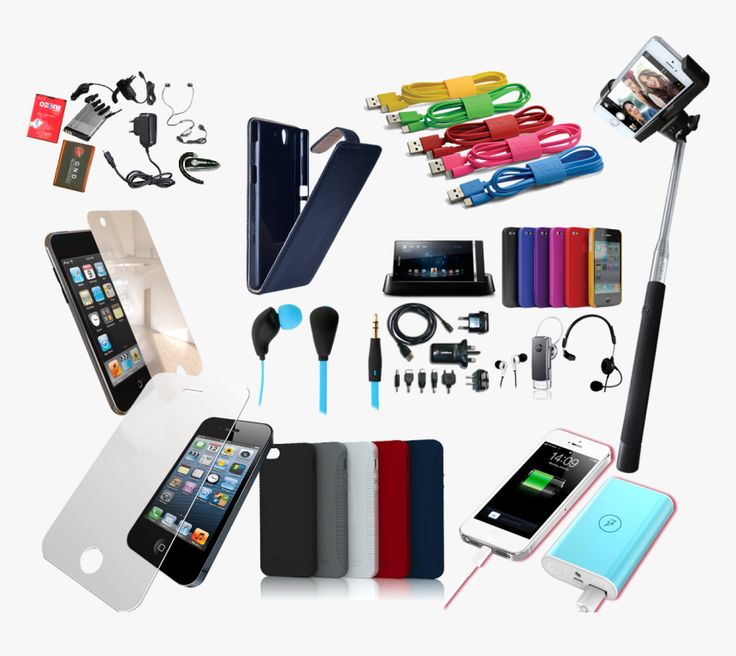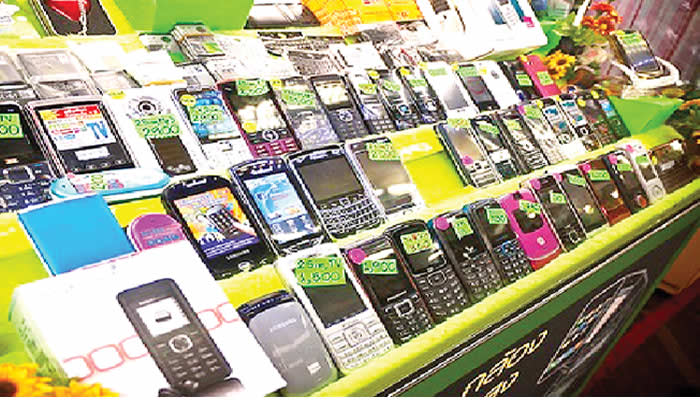Have you ever walked into a shop and found yourself amazed by all the cool phone accessories? The demand for phone accessories in Nigeria has been skyrocketing, from trendy phone cases to powerful chargers. If you’ve ever thought about diving into this business, you’re not alone.
With millions of smartphone users in Nigeria, the market is full of opportunities. But before you jump in, knowing how much it costs to start and what it takes to succeed is essential. In this guide, we’ll walk you through everything you need to know, step by step, so you can start your own phone accessories business with confidence.
Keep reading to discover how much it’ll cost, the best strategies to succeed, and practical tips for beginners just like you!

What are phone accessories?
Mobile accessories include any hardware that is not integral to the operation of a mobile smartphone as designed by the manufacturer and adds utility to the mobile phone. According to Wikipedia.
They include some of the following
- Pouches and sleeves
- Holsters
- Shells
- Skins
- Fitted cases
- Bumpers
- Flip cases and wallets
- Screen protection films
- Camera protection films
- Drop and shock protection
- Leather cases
- Cases with integrated kickstands
- Battery cases
- Cases with protection devices
they serve as third-party protective cases for devices, usually crafted from plastic with no exposed rigid corners. On the other hand, heavy-duty cases are specifically designed to safeguard against drops and scratches. they are mostly made by third-party companies such as Oraimo and others.
Related Posts:
- Discover How to Start a Provision Store Business in Nigeria
- 30 Profitable Offline Service Business Ideas in Nigeria 2025.
- 35 Low-cost Offline Business Ideas in Nigeria 2025.
- Local Business Ideas
Steps in Starting a Phone Accessories Business in Nigeria
Step 1. Understanding the Market and Demand
Before we consider the costs, let’s take a moment to understand why the phone accessories market is booming in Nigeria.
A. Smartphone Ownership in Nigeria: With over 180 million people in the country, many of them are smartphone users. As mobile phones become more affordable, the need for accessories like chargers, earphones, and phone cases continues to rise.
B. Consumer Needs: People want to personalize their phones, protect them, and replace old accessories. This creates a steady demand for phone accessories that you can take advantage of as a business owner.
C. Trends: Some accessories, like wireless chargers, Bluetooth earphones, and stylish phone cases, are becoming particularly popular. By understanding trends, you can stock up on what customers want.

Step 2. Estimating the Initial Investment
Now, let’s talk numbers! You’re probably wondering, “How much does it cost to get started?” The costs can vary depending on the size and scale of your business.
A. Small-Scale Business Setup (₦100,000 to ₦500,000): If you want to start small, maybe a small shop or even selling from home, you can expect to spend between ₦100,000 to ₦500,000. This could cover the basics: a small inventory of accessories, some display stands, and setting up your business space (maybe a kiosk or small store).
B. Medium to Large-Scale Business Setup (₦500,000 to ₦1,000,000+): If you plan to rent a bigger space, have a larger inventory, and maybe even hire staff, you’ll be looking at ₦500,000 and beyond. Costs can go up depending on your location, the variety of products, and the kind of marketing strategies you implement.
Step 3. Detailed Breakdown of Costs
Let’s break down these costs a bit further so you know exactly what to expect:
A. Inventory Costs: The majority of your initial investment will go into purchasing stock. Accessories like phone cases, chargers, power banks, and earphones are all essential. Expect to spend a portion of your budget on buying these items in bulk from wholesalers or online suppliers.
B. Store or Kiosk Rental: Your location matters! If you’re renting a shop or kiosk in a busy area, this will be one of your biggest costs. Locations in high-traffic areas like shopping malls, busy markets, or street corners are ideal for attracting customers. Be sure to factor in rent for the space.
C. Licenses and Permits: To operate legally in Nigeria, you’ll need to register your business with the Corporate Affairs Commission (CAC). This is relatively affordable but essential. You’ll also need to get a Tax Identification Number (TIN) for tax purposes.
D. Other Costs: Don’t forget to account for small expenses like equipment (e.g., display racks, POS systems for payments), branding (logos, signs), and utilities (electricity, internet) to keep your business running smoothly.
Step 4. Financing Your Phone Accessories Business
Not everyone has ₦100,000 or more just lying around to start a business. If you don’t have enough savings, here are some ways to raise funds:
A. Personal Savings: If you’ve been saving up, this is the most straightforward option. Using your savings helps you avoid owing anyone money or paying interest.
B. Loans and Grants: Consider applying for a loan from a bank or financial institution. Some government grants or business development programs might also be available for startups, especially for youth entrepreneurs.
C. Investors or Partnerships: If you have a great business idea but need more capital, you might want to bring in an investor or a business partner who can provide the funds in exchange for a share of the profits.
Step 5. Choosing the Right Location
One of the most important decisions you’ll make is where to set up shop. Whether you’re opening a physical store or planning to sell online, location plays a big role in your success:
A. Physical Store: Choose a high-traffic area with lots of foot traffic. Popular places include shopping malls, markets, and busy streets. If renting a store is too expensive, a smaller kiosk in a busy area can be a great option.
B. Online Store: Setting up an online store on platforms like Jumia or Konga, or creating your website, can help you reach more customers. Make sure to use social media to promote your online business.

Step 6. Sourcing Your Products
Now that you know where to sell, it’s time to talk about where to get your products from:
A. Local Suppliers vs. International Suppliers: You can source your accessories from local wholesalers or go international by importing directly from manufacturers. While international suppliers might offer cheaper prices, local suppliers offer quicker delivery times and fewer customs hassles.
B. Wholesale Markets: One popular option is to buy your products from local wholesale markets in Nigeria. These markets are full of suppliers who offer competitive prices.
C. Quality Control: Always check the quality of the products you’re buying. Offering quality accessories that last will help you build a loyal customer base.
Step 7. Setting Up Your Business
Setting up your shop is where all your hard work starts to pay off. Here’s how to create an attractive, professional setup:
A. Shop Setup: Whether you have a small kiosk or a large store, ensure your display stands are neat and appealing. Invest in a good point-of-sale (POS) system to handle payments.
B. Branding and Signage: Create an eye-catching logo and display signs that will help you stand out. Your branding should reflect the type of business you’re running and appeal to your target customers.
C. Security and Insurance: Protect your inventory with basic security measures and consider getting insurance to safeguard your business against unforeseen circumstances.
Step 8. Hiring and Training Staff
As your phone accessories business grows, you will need to hire staff to handle operations. Here’s how to do it effectively:
1. Hiring Staff
A. Determine Staffing Needs: Decide how many employees you need based on your business size. Small setups may need one or two, while larger stores may require more.
B. Look for Key Skills: Seek candidates with good communication skills, a positive attitude, and a willingness to learn. Retail experience is helpful but not necessary.
C. Interview Process: Conduct simple interviews to assess their reliability and enthusiasm. Consider a trial period to evaluate performance.
2. Training Staff
A. Product Knowledge: Train staff on the products you sell, including features and benefits, so they can confidently assist customers.
B. Customer Service: Teach staff to be friendly, helpful, and attentive, especially when handling complaints.
C. Sales Techniques: Train them on upselling, promotions, and customer buying signals to boost sales.
D. POS and Inventory: Ensure they can use the POS system, handle transactions, and manage inventory effectively.
E. Health and Safety: Ensure they follow basic safety protocols and hygiene standards.
3. Ongoing Training and Support
A. Regular Updates: Keep staff updated on new products and trends with regular training sessions.
B. Provide Feedback: Offer continuous feedback to help them improve and create an open environment for questions.
C. Motivate and Reward: Recognize good performance and maintain a positive work environment to reduce turnover.
Step 9. Marketing Your Business
Once your shop is set up and ready to go, it’s time to attract customers. Here’s how to get the word out:
A. Traditional Marketing: Use flyers, posters, and even billboards to get local customers’ attention. Hosting a grand opening sale can also bring in a crowd.
B. Digital Marketing: Social media is a great way to promote your business. Platforms like Instagram and Facebook can help you reach a wider audience. You can also run paid ads to attract customers.
C. Online Marketplaces: Listing your products on platforms like Jumia or Konga can help you reach a national audience and increase your sales.
Step 10. Legal and Regulatory Requirements
Running your business legally is crucial to avoid fines or problems in the future. Here’s what you need to know:
A. Business Registration: To legally operate in Nigeria, you need to register your business with the Corporate Affairs Commission (CAC). This is an affordable process that will give your business legitimacy.
B. Tax Identification Number (TIN): You’ll need to obtain a Tax Identification Number (TIN) for tax purposes. This ensures that your business complies with Nigeria’s tax laws.
C. Permits and Insurance: Depending on your location, you might need to acquire certain permits to run your business. Additionally, it’s a good idea to get business insurance to protect your shop and inventory from any unexpected events.

Step 11. Monitoring, Adjusting, and Growing
Your journey doesn’t stop after opening your store. You need to keep an eye on your sales and customer feedback to stay competitive:
A. Customer Feedback: Always ask customers for feedback on your products and service. This can help you improve your business.
B. Monitor Sales: Keep track of your sales trends. If certain products are selling better, consider increasing your stock of those items.
C. Scaling Up: As your business grows, think about expanding your product line or even opening more locations.
Conclusion
Starting a phone accessories business in Nigeria can be a rewarding adventure, but like any business, it takes time, effort, and a good understanding of the market. Whether you’re starting small with a budget-friendly setup or going big with a larger store, the key is to plan carefully, keep an eye on costs, and always adapt to what your customers want.
Take your time, do your research, and don’t be afraid to seek help when needed. Soon enough, you’ll be on your way to becoming a successful phone accessories business owner in Nigeria. Best of luck on your journey, this could be the start of something amazing!


